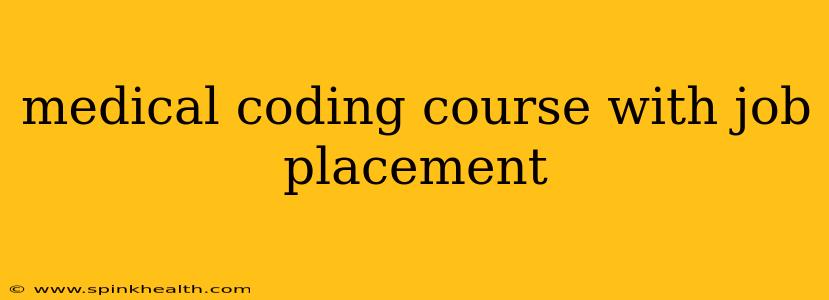The world of healthcare is vast and ever-evolving, and behind every doctor, nurse, and hospital administrator, there’s a crucial role ensuring smooth operations: the medical coder. If you're drawn to the intricacies of healthcare but prefer a desk-based role with strong job prospects, a medical coding course with job placement assistance might be your perfect career path. This isn't just about numbers; it's about translating medical information into a language understood by insurance companies, enabling patients to receive timely and accurate reimbursement for their care. Let's unravel the possibilities.
What Exactly is Medical Coding?
Imagine a complex medical chart, filled with diagnoses, procedures, and medications. Medical coders take this often-cryptic information and transform it into standardized numerical and alphanumeric codes. These codes, based on systems like ICD-10 (International Classification of Diseases) and CPT (Current Procedural Terminology), are the language insurance companies use to process claims. Accurate coding is essential for hospitals, clinics, and physician practices to receive proper payment, keeping the healthcare system running smoothly.
Why Choose a Medical Coding Course with Job Placement?
The healthcare industry is booming, and skilled medical coders are in high demand. But simply earning a certificate isn't enough; you need the edge to land that dream job. That's where job placement assistance comes in. Reputable courses don't just teach you the codes; they equip you with the skills and connections to secure employment. These programs often include:
- Resume and Cover Letter Workshops: Learn to showcase your newfound skills effectively.
- Interview Preparation: Master the art of the interview, from answering tough questions to negotiating your salary.
- Networking Opportunities: Connect with professionals in the field, potentially leading to internships or job offers.
- Career Counseling: Navigate the job market with personalized guidance and support.
What Skills Will I Learn in a Medical Coding Course?
A comprehensive medical coding course will cover a wide range of essential skills, including:
- ICD-10 Coding: Mastering the intricacies of diagnosing codes.
- CPT Coding: Understanding procedural codes and their application.
- HCPCS Level II Coding: Learning about codes for supplies, services, and procedures not covered by CPT.
- Medical Terminology: Developing a solid understanding of medical language.
- Anatomy and Physiology: Building a foundation of medical knowledge.
- Medical Billing and Reimbursement: Understanding the financial aspects of healthcare.
- Electronic Health Records (EHR) Software: Gaining proficiency in using common EHR systems.
- Compliance and Regulations: Staying up-to-date with industry regulations and best practices.
What are the Job Prospects After Completing a Medical Coding Course?
The job market for medical coders is bright. Graduates can find opportunities in various settings, including:
- Hospitals: Working in billing departments, processing claims, and ensuring accurate reimbursement.
- Physician Practices: Supporting physicians by coding medical records and managing billing.
- Insurance Companies: Reviewing claims, ensuring accuracy, and detecting fraud.
- Medical Billing Companies: Working as outsourced coders for various healthcare providers.
How Much Does a Medical Coding Course Cost?
The cost of medical coding courses varies depending on the program length, location, and provider. Research different options carefully, comparing costs and the value offered in terms of job placement support.
Is a Medical Coding Certification Necessary?
While not always mandatory, a recognized certification demonstrates your competency and can significantly improve your job prospects. Look for courses that offer nationally recognized certifications like the American Academy of Professional Coders (AAPC) or the American Health Information Management Association (AHIMA).
What are the Career Advancement Opportunities?
With experience, medical coders can advance to supervisory roles, such as coding supervisors or billing managers. They might also specialize in a particular area of coding, such as oncology or cardiology.
How Long Does It Take to Become a Medical Coder?
The length of medical coding courses varies, but many programs can be completed in a few months to a year. The quicker you complete the course, the faster you can start your new career.
This journey into the world of medical coding can be incredibly rewarding. By choosing a course with a strong emphasis on job placement, you're not just acquiring a skill set; you're investing in a future filled with opportunities in a vital and ever-growing industry. So, crack the code, and start your healthcare career today!

